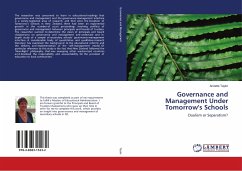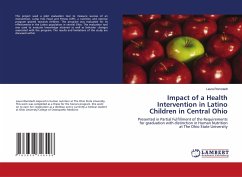The collapse of Suharto's regime in 1998 brought significant change to Indonesia's public sector. Education at primary and secondary levels, since 1 January 2001, was administered at district level rather than in the previously centralized and bureaucratic manner. At the school level, ideas about school autonomy emerged and became popular. In particular the term 'School Based Management' (SBM) was seen as a panacea, and as a result the central government issued a regulation to implement the practice of SBM. This study analyses the dynamics of the SBM policy as it was being interpreted and implemented at district and secondary school level in Indonesia.
Bitte wählen Sie Ihr Anliegen aus.
Rechnungen
Retourenschein anfordern
Bestellstatus
Storno








